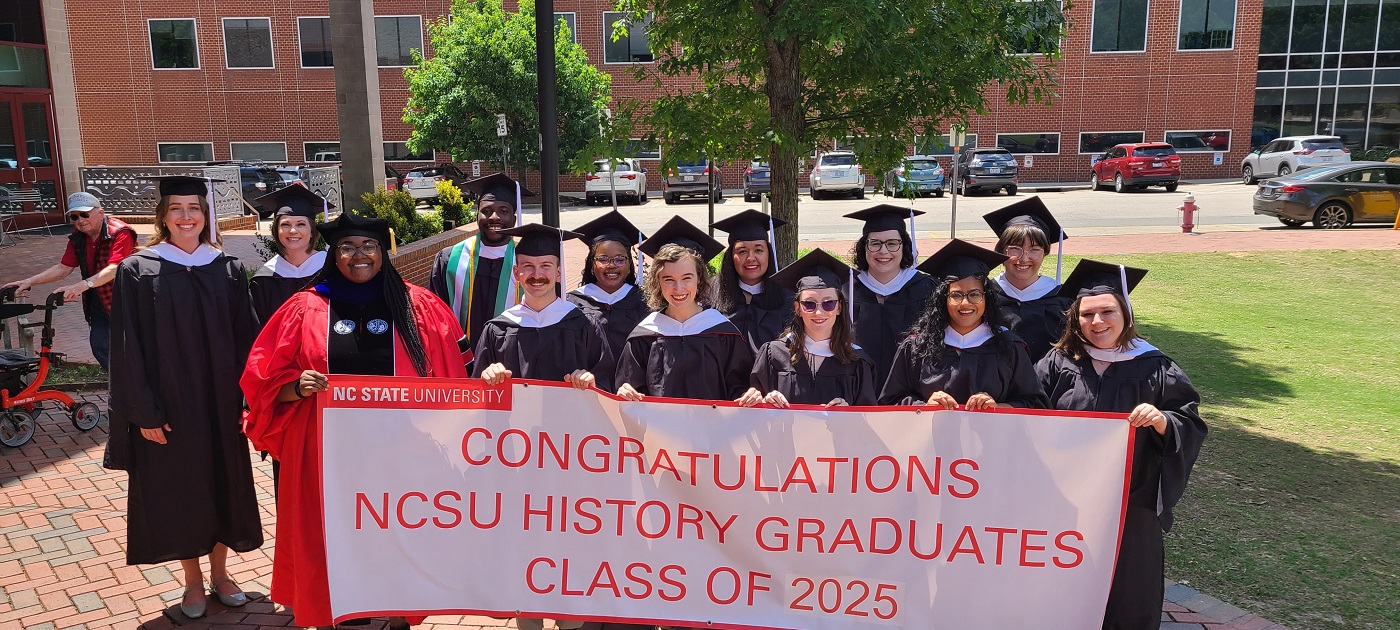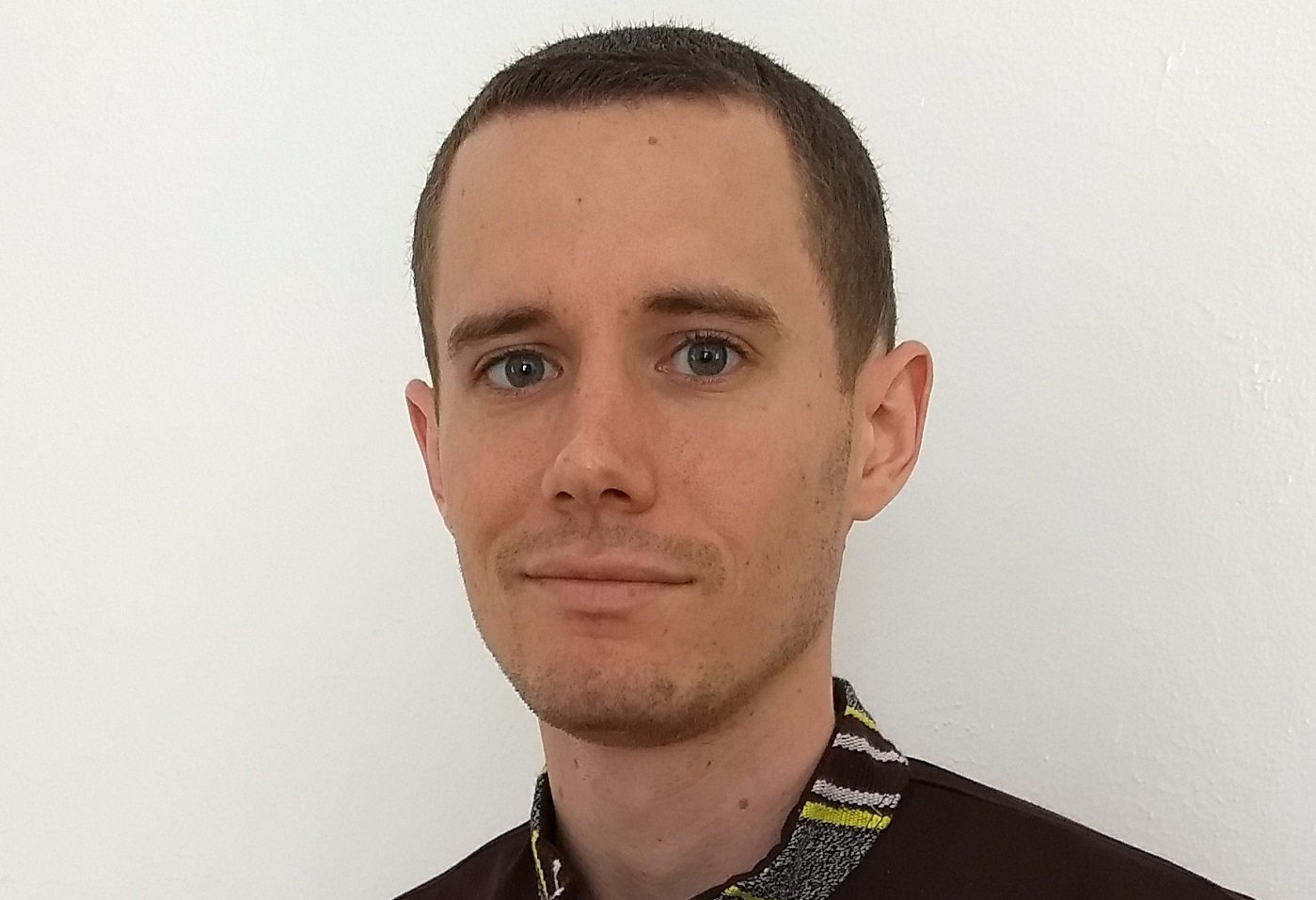Public History PhD student Melody Hunter-Pillion named 2021-22 Global Change Fellow
We are proud to announce that Public History PhD student Melody Hunter-Pillion was named a 2021-22 Global Change Fellow. The Global Change Graduate Fellows Program, which is sponsored by the USGS Southeast Climate Adaptation Science Center and NC State University, is designed to train the next generation of global change scientists by providing financial, scientific, and professional development support for graduate students who are interested in multi-disciplinary research.
In the interview below, Melody discusses why her research makes her uniquely qualified to be a Global Change Fellow.
Before we get into the fellowship, tell me about your research
I’m working on collecting oral histories and examining archived testimonies of African American farmers primarily in Eastern North Carolina (specifically Brunswick Country). My goal is to learn how they view both land ownership and stewardship of the environment. I also ask how those perspectives and corresponding oral traditions will impact the ways farmers adapt to climate change. My research may include farmers in Craven County, N.C. where there was a group of land-owning, free African Americans in the state’s colonial period. Archived oral histories, combined with recently collected interviews, allow me to look at land ownership and oral traditions over time.

In the 1920s, one in seven U.S. farmers was African American, and now Black farmers make up only 1.2% of the nation’s farmers. When I interviewed the farmers in Brunswick County, the latest U.S. Agricultural Census Report showed there were only three farmers under the age of 35 in the entire county. The Simmons family, who provided oral narratives for my research, contained those three young Black farmers. Because I grew up in a rural area where I routinely saw Black and Native American farmers, I was stunned at the decline in this agricultural tradition. There is this very complicated history with African Americans, labor, and cultivation of the land. The ones who still farm talk about how important land ownership is and how it has always been connected with freedom and wealth. Additionally, the spaces to which Black farmers were relegated, during and after Reconstruction, often had greater tendency to flood or exhibited other challenges. When given access to owning, it was frequently the worst land. When we fast forward to climate change, those farmers in historically flood-prone areas might have to deal with a problem that a neighboring farmer doesn’t have to navigate to the same extent.
The African American farmers whom I have been speaking with own their land, and they are trying to buy more land. They want other Black farmers who are selling their land to sell it to them rather than to developers. One elderly African American farmer I interviewed had no descendants to whom he could pass his farming heritage. Those farmers with descendants often find the younger generation does not want to farm. Unfortunately, for a long time, working the land was connected to something that was very denigrating – human bondage. Later sharecropping and tenant farming cheated families. These families had been working on the land for generations and had nothing to show for it. So, how do you turn that image around?
There are some young Black farmers now who are doing quite well – for instance, Tillery Farms. Settlements in class action lawsuits like Pigford V. Glickman and national legislation in the Farm Bill agree that Black farmers were discriminated against by the USDA in securing loans, and those farmers are owed money. I think some progress has been made in that aspect; however, if you look at the dwindling numbers of African American farmers, there’s still a lot of work to be done. Who knows if those numbers will increase. It’s hard to imagine the numbers will ever be 1 in 7 again.
Has the pandemic impacted your research?
I started collecting some histories in Brunswick County before the pandemic. During the pandemic, I touched base over the phone just to see how the farmers have doing, what’s happening this season, and what the impact has been, but I haven’t been back to collect interviews. This summer I want to gather testimonies again, reinterview the farmers that I had already interviewed, and then add on the Craven County farmers.
What are some things you have learned as you conduct your research?
One of the things I notice with the African American families of Brunswick County is they always start their family history with “Our family came here from…” or “My people came here from…” and they would say whatever county they came from, and then they’d say “With this particular slave owner…” They know their history. I found the same pattern of memory and identity elements when I was conducting a preliminary interview with an African American landowner in Craven County. He started his family history with “We were always free. We’ve been here since the early 1700s.” This particular Black family is part of a group called the “Harlow Patriots,” and they fought in the American Revolution. Their history and claim to landownership are the core of their “We were always free” identity, and they want people to know it. But where does their experience of land stewardship fit with the Brunswick County experience and with climate change?
Why did you apply for the Global Change Fellowship and what can you bring to the cohort?
Every year the Southeast Climate Science Center puts out a call for applications for their fellowship. Although it seems to be a natural fits for STEM students, I know that humanities students have a lot to offer particularly when it comes to examining how communities adapt to climate change. With the encouragement of my advisor, Dr. Blair Kelly, who is associated with the Southeast Climate Science Center, I applied. I have to give Dr. Kelly, who is the chair of my dissertation committee, a lot of credit for encouraging me as a scholar to not be afraid to use my scholarship in new ways. She has really opened avenues for me and fully supports my efforts.
In the application, I described my research in relation to climate change and the involvement of communities in climate resiliency. My work is forward-looking in terms of preparing for the future by learning from oral traditions shaped in the past. Again, I think humanities students are really strong in being able to do this type of work, but how do we express that? How do we articulate that to communities but also to scientists? How can we be helpful to communities and to scientists and in what ways can we work with communities and scientists? I’m hoping that not only can I do collaborative community work, but also that being part of the multidisciplinary cohort this year helps create the language around how to be successful in that work.
The wonderful thing about the Global Change Fellowship is that it gives me access to science experts who can help me understand their work on climate change in a way that is more digestible and which I can apply to my own work.
Tell me more about the Fellowship and what is expected of you
I’m looking forward to a year of good, hard work. It will be challenging, but also expands and ups my game. As a Global Change Fellow – the first expectation is we will have a week of intensive field study although I am not yet sure what that will look like this year with Covid. In the past, they have actually been out in the field the entire week. This year we will do a combination of field and virtual gatherings. It will give us a chance to get to know each other and the projects we are developing. The other expectation is that each year the scholars are assigned roles in planning climate events. Otherwise, we will each work on our area of research, and everyone has their own particular focus.
The gift of having this year-long fellowship, which includes a stipend and tuition, means that I can totally devote the year to my doctoral research. This is tremendous, and the fellowship literally changes my life.
What do you want to do once you have your PhD?
I feel uniquely positioned to go in many different directions. This great foundation of scholarship that I’m getting at NC State makes me even more capable of having choices. I love teaching, and I think I’m a very good mentor; I do think I’ll be in the classroom in some way. But my full-time job might be working with in academia in another capacity, or state government in some capacity because universities, as well as state and federal government entities are all charged with looking at climate change, adaptation, and resiliency. They need people who can communicate with communities and also pull together narratives that help all of us understand what is happening and articulate what we might be able to do. My doctoral study at NC State have given me options. That’s powerful.
- Categories:


